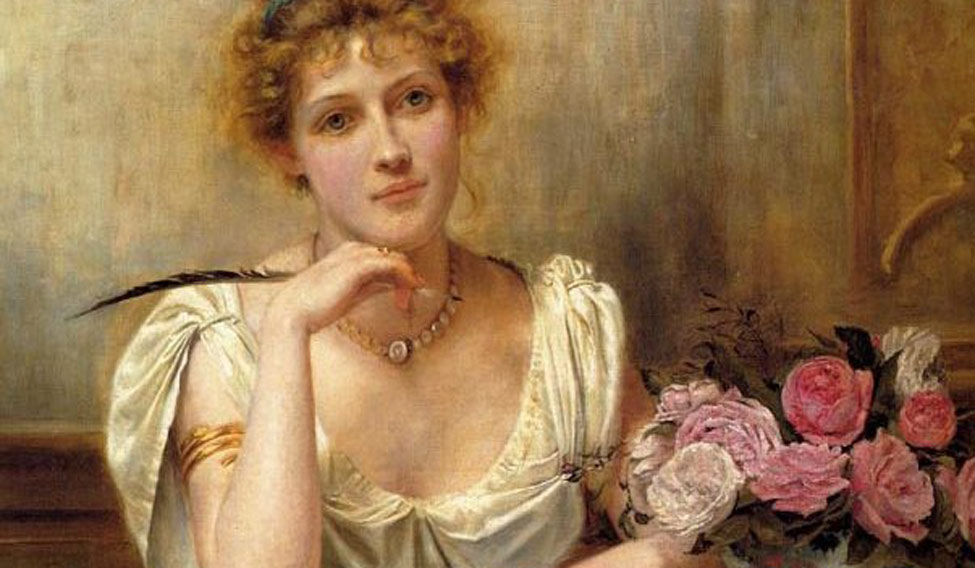I believe that female writers are more comfortable with female heroines and male writers are more comfortable with male heroines. This is not just how it is but perhaps this is how it should be. So many experiences in life, especially for a woman, is so gendered that we would be completely different beings if we hadn’t been born as women. There is a scene in Erich Segal’s Love Story in which Oliver asks Jenny whether she fell in love with him only because he was rich. And she gives a beautiful reply: “If you hadn’t been rich, you wouldn’t have been who you are.” Similarly, if we hadn’t been women, we wouldn’t have been who we are. That’s why it is so difficult for male writers to simulate the female experience. They have never been told they should not become pilots “because only boys become pilots”. They have never been made to feel inferior because of their gender. They have never been harassed and made to feel as if it was their fault. The feminine experience is so subtle and so much a part of the fabric of a woman’s experience that often, not even she is aware of it.
That’s why I’m fascinated by the way some male writers have not just simulated it but have recreated it. Many men create female heroines out of the fodder of their imaginations. Sidney Sheldon is a prime example – his heroines are strong, powerful women who have been ravaged by suffering and have come out of it victorious. In their thirst for revenge against the men who tried to destroy them, they get wealth, power and fame, but these are mere byproducts that afford the women little happiness or comfort. A pretty picture of a woman’s life but terribly far from reality.
Then there are the male writers who are good observers of how women behave. Like Jeffrey Archer, whose heroine Florentina Rosnovski is a triumph of human creation. She’s fresh and feisty without being a cardboard character. All the small hurts and disappointments that make up a woman’s life have been captured beautifully. But because Archer is so concerned with writing thrillers, he has to pack his books with incidents and occurrences that give him little time to delve deep into what it feels like to be a woman. Women don’t have the leisure to just be. Something has to be happening to them all the time.
Writers love idealising the ‘ordinary’. They create ordinary men and women and make things happen to them that make them extraordinary. You love some books because you can identify with the protagonist – you think to yourself: “that is so true”. But the real beauty is when you can create characters - vamps and vagabonds – vastly different from the ordinary and infuse them with life. (Aravind Adiga did it wonderfully with his anti-hero in The White Tiger). I think the first time I realised that there were women so different from me was when I read Vladimir Nabokov’s Lolita. Lolita is wonderfully nuanced and the novel is entirely character driven and not a single portion is plot driven. At every crucial juncture, Nabokov imagines what a real Lolita would have done and turns the story in that direction instead of diluting Lolita’s character to fit in with a plot of his choice.
One of the best female creations by a male writer is Ian McEwan’s Briony Tallis in Atonement. Briony, as a young girl, destroys her sister’s love affair with a man and sets in motion a powerful sequence of events over which she has no control. The entire book underscores a single emotion – guilt – and what it can do to a woman. As she grows up, Briony imagines a different life, the way things would have been if only she had a say in changing the past. She believes in it so powerfully that she convinces herself that what she believes is true. The book raises pertinent questions about truth and perspective. Is truth simply a perspective?
The book that perhaps most clearly resonates with the Indian situation is Leo Tolstoy’s Anna Karenina. Anna cannot be appreciated for the character of Anna herself. The book is so much more a treatise on what society does to a woman. It is a beautiful exposition on what being shunned and ridiculed does to a woman. Men, especially in India, tend to idolise a certain kind of woman. We have fixed perceptions about how a woman should act, behave, be. When she doesn’t, we ostracise her. In a Sidney Sheldon novel, Anna would rise above the censure of society and make something great of herself. But Tolstoy’s Anna lies broken and battered by her surroundings. A woman is so much a product of how others perceive her. And it takes a skilled writer to realise that.







